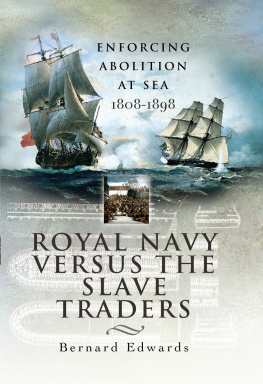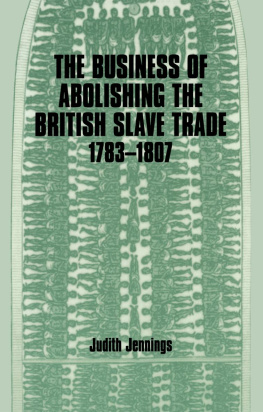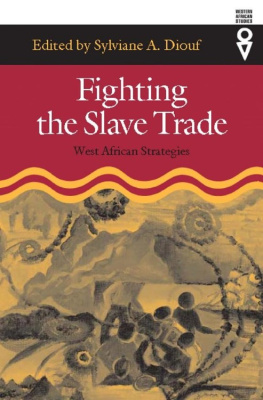The Slave Trade, Abolition and the Long History of International Criminal Law
Modern international criminal law typically traces its origins to the twentieth-century Nuremberg and Tokyo trials, excluding the slave trade and abolition. Yet, as this book shows, the slave trade and abolition resound in international criminal law in multiple ways. Its central focus lies in a close examination of the often-controversial litigation, in the first part of the nineteenth century, arising from British efforts to capture slave ships, much of it before Mixed Commissions. With archival-based research into this litigation, it explores the legal construction of so-called recaptives (slaves found on board captured slave ships). The book argues that, notwithstanding its promise of freedom, the law actually constructed recaptives restrictively. In particular, it focused on questions of intervention rather than recaptives rights. At the same time it shows how a critical reading of the archive reveals that recaptives contributed to litigation in important, but hitherto largely unrecognized, ways. The book is, however, not simply a contribution to the history of international law. Efforts to deliver justice through international criminal law continue to face considerable challenges and raise testing questions about the construction and alternative construction of victims.
By inscribing the recaptive in international criminal legal history, the book offers an original contribution to these contentious issues and a reflection on critical international criminal legal history writing and its accompanying methodological and political choices.
Dr Emily Haslam is a Senior Lecturer in International Law at Kent Law School. Her research interests lie in the field of international criminal law, international legal history and civil society. She has extensive experience teaching international law, international criminal law and transnational criminal law.
First published 2020
by Routledge
2 Park Square, Milton Park, Abingdon, Oxon OX14 4RN
and by Routledge
52 Vanderbilt Avenue, New York, NY 10017
Routledge is an imprint of the Taylor & Francis Group, an informa business
2020 Emily Haslam
The right of Emily Haslam to be identified as author of this work has been asserted by her in accordance with sections 77 and 78 of the Copyright, Designs and Patents Act 1988.
All rights reserved. No part of this book may be reprinted or reproduced or utilised in any form or by any electronic, mechanical, or other means, now known or hereafter invented, including photocopying and recording, or in any information storage or retrieval system, without permission in writing from the publishers.
Trademark notice: Product or corporate names may be trademarks or registered trademarks, and are used only for identification and explanation without intent to infringe.
British Library Cataloguing-in-Publication Data
A catalogue record for this book is available from the British Library
Library of Congress Cataloging-in-Publication Data
A catalog record for this book has been requested
ISBN: 978-1-138-34889-9 (hbk)
ISBN: 978-0-429-43648-2 (ebk)
Typeset in Galliard
by Apex CoVantage, LLC
In completing this book, I am hugely indebted to colleagues and friends who have generously supported and encouraged me over the many years it has taken me to complete it. Donatella Alessandrini, Kate Bedford, Davina Cooper, Marie Dembour, Maria Drakopoulou, Rod Edmunds, Luis Eslava, Emily Grabham, Nick Grief, Didi Herman, Suhraiya Jivraj, Sara Kendall, Ed Kirton-Darling, Rose Parfitt, Nick Pika, the late Bryan Scattergood, Sally Sheldon, Charlotte Skeet, Sophie Vigneron, Dermot Walsh and Toni Williams readily read drafts and discussed ideas with me. Their comments, insights and encouragement have been invaluable. In completing this project, I have also benefited from discussions with many people. I would like to express my sincere thanks to Jose Bellido, Robert Burrell, Eleanor Curran, Chris Morrison, the late Bruce Mouser, Christine Schwbel-Patel, Marike Sherwood, Thomas Skouteris and Immi Tallgren. I am extremely grateful to the anonymous reviewers for their time and insights which have helped me to strengthen the book significantly. Needless to say, all errors are my own. I would also like to thank the Society of Legal Scholars for an award from the Research Activities Fund and the University of Kent for a Faculty Small Grant which enabled me to conduct much of the archival work that underpins this project. The book has also benefited from the collegiate and inspiring environment at Kent Law School. My thanks also go to Yvonne Rigby, who provided invaluable research assistance, and Marie Selwood for her excellent editorial assistance. I would also like to thank the staff at Routledge, particularly Katherine Carpenter, Alison Kirk and Emily Summers. Finally, I would like to thank my parents, John and Muriel Haslam, for nurturing a love of knowledge and Terry Gibson for his immense support, encouragement and patience.
Parts of this book draw on some previously published work. Aspects of my discussion of Mixed Commissions, in particular my account of the Sinceridade, Activo, Perpetuo Defensor and Maria da Gloria cases in parts of draw on material and ideas previously published in Haslam, (2016) International Criminal Law and Legal Memories of Abolition: Intervention, Mixed Commission Courts and Emancipation , Journal of the History of International Law 18: 420447. I explored some preliminary ideas about the slave trade, silences, international criminal legal history and victims in the context of criminal prosecutions for slave trading in Haslam, Silences in international criminal legal histories and the construction of the victim subject of international criminal law: The nineteenth-century slave trading trial of Joseph Peters in C. Schwbel (ed.), Critical Approaches to International Criminal Law: An Introduction , London: Routledge. Some of the claims made about international criminal legal history writing draw on some of the methodological arguments which are developed further and for a different purpose in Haslam, (2019) Writing More Inclusive Histories of International Criminal Law: Lessons From the Transatlantic Slave Trade in I. Tallgren and T. Skouteris (eds), The New Histories of International Criminal Law: Retrials , Oxford: Oxford University Press.
1
Rethinking international criminal legal history
Introduction
The British ship, the Snake , captured the slave ship, the Maria da Gloria , not far from Rio de Janeiro in November 1833. On board were over 400 slaves, or recaptives, as they were also known (that is slaves found on board slave ships captured in this case by the British Navy) (HM Commissioners to Palmerston 31 March 1834; Haslam 2016: 439440). At least half of this wretched human cargo was young children (Bethell 1970: 135). The British captors brought the Maria da Gloria and the recaptives before a British- Brazilian Mixed Commission which had been established at Rio de Janeiro. This Commission decided that it had no jurisdiction over the Maria da Gloria because it considered the ship to be Portuguese (HM Commissioners to Palmerston 31 March 1834: 33). Therefore, the British captors sailed the Maria da Gloria and the recaptives across the Atlantic to Sierra Leone, the site of a British-Portuguese Mixed Commission. They reached Sierra Leone 46 days later (Burroughs 2010: 110). The British-Portuguese Mixed Commission at Sierra Leone ordered the Maria da Gloria to be returned to the master of the Maria da Gloria . Portugal had only agreed to the capture and detention of slave ships north of the Equator, but as the Snake had captured the Maria da Gloria south of the Equator, the seizure and detention of the Maria da Gloria was unlawful. The Commission, therefore albeit very unwillingly ordered the recaptives to be returned with the ship. On 9 April 1834, 240 slaves crossed the Atlantic for the third time on board the Maria da Gloria . Over 100 of the slaves originally trafficked had died. Sixty-four of the sickest slaves remained in Sierra Leone. British Commissioners hoped that this case would form the basis of representations on the part of the British government to Portugal to abolish the slave trade completely and to further empower the Royal Navy (HM Commissioners to Palmerston 9 April 1834: 4546).







